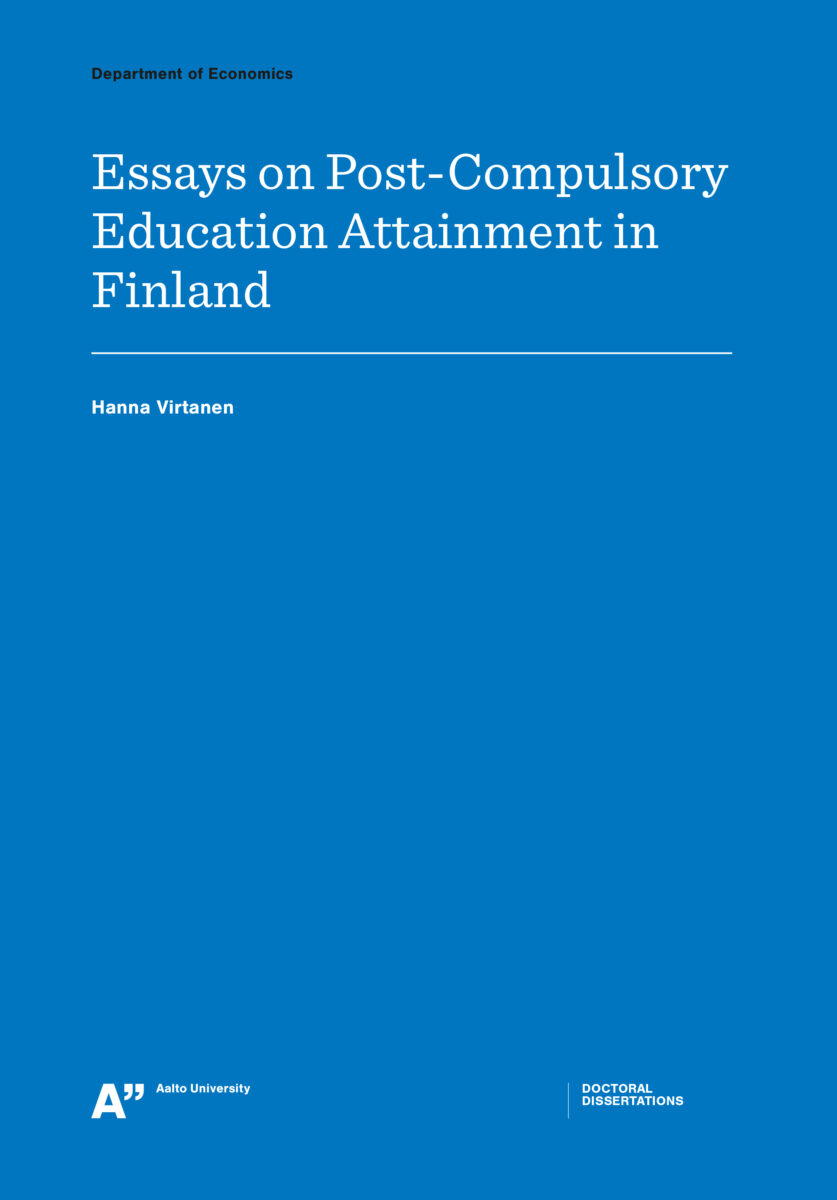
This thesis examines the determinants of upper secondary education attainment in Finland. The analyses build on register data for four cohorts of Finns leaving compulsory education in 2000–2003. The education outcomes are observed each year until 2012, and thus, the balanced observation period for all cohorts is nine years after the end of compulsory education. This gives the individuals abundant time to complete a degree, and those without a degree have often permanently dropped out from post-compulsory education.
Essay 1 provides descriptive evidence for the determinants of the failure to complete any upper secondary education. The findings highlight the important role of prior achievement and parental background in predicting post-compulsory education attainment. The Essay also documents considerable variation in the association between the probability of graduating and regional availability of high school and vocational tracks. Furthermore, the results show that the initial upper secondary education choice after finishing compulsory education is very important for the overall completion probability.
Essays 2 and 3 study how the centralized Finnish admission system impacts upper secondary enrolment and completion rates for applicants on the margin of receiving offers. I employ the regression discontinuity design created by the admission thresholds to estimate how admission to any upper secondary education position or to the first ranked application request affects the process of completing a post-compulsory degree.
Each year, approximately 4 percent of the individuals leaving compulsory education and applying to upper secondary schools receive no offer in the application process. Essay 2 shows that rejection decreases the probability of completing a post-compulsory degree by approximately 7 to 9 percentage points. This equals to 10 to 15 percent of the potential graduation rate of the rejected applicants. Rejection also postpones graduation from upper secondary education substantially.
Essay 3 explores how the discrepancy between an individual’s aspirations and the study track in which he or she is admitted affects the process of completing an upper secondary degree. The results show that admission to an individual’s first ranked education track increases the probability of graduating by approximately 4 percentage points.